- Home
- Lisa Kleypas
Tempt Me at Twilight Page 3
Tempt Me at Twilight Read online
Page 3
“A clockwork mechanism.” He removed the picture from the wall and displayed the open back. “There it is, attached to a flywheel by that drive band. And the pins work these wire levers . . . here . . . which in turn activate the other levers.”
“Remarkable!” In her enthusiasm, Poppy forgot to be guarded or cautious. “Obviously Mr. Rutledge is mechanically gifted. This brings to mind a biography I read recently, about Roger Bacon, a Franciscan friar of the Middle Ages. My father was a great admirer of his work. Friar Bacon did a great deal of mechanical experimentation, which of course led some people to accuse him of sorcery. It was said that he once built a mechanical bronze head, which—” Poppy stopped abruptly, realizing she had been chattering. “There, you see? This is what I do at balls and soirées. It’s one of the reasons I’m not sought after.”
He had begun to smile. “I thought talking was encouraged at such affairs.”
“Not my sort of talking.”
Tap. Tap. Tap.
They both turned at the sound. The maid had arrived.
“I must go,” Poppy said uneasily. “My companion will be very distressed if she wakes to find me missing.”
The dark-haired stranger contemplated her for what seemed a very long time. “I’m not finished with you yet,” he said with stunning casualness. As if no one ever refused him anything. As if he planned to keep her with him for as long as he wished.
Poppy took a deep breath. “Nevertheless, I am leaving,” she said calmly, and went to the door.
He reached it at the same time she did, one hand flattening against the door panel.
Alarm jolted through her, and she turned to face him. A swift, frantic throbbing awakened in her throat and wrists and the backs of her knees. He was standing much too close, his long, hard body nearly touching hers. She shrank against the wall.
“Before you leave,” he said softly, “I have some advice for you. It’s not safe for a young woman to wander alone through the hotel. Don’t take such a foolish risk again.”
Poppy stiffened. “It’s a reputable hotel,” she said. “I have nothing to fear.”
“Of course you do,” he murmured. “You’re looking right at it.”
And before she could think, or move, or breathe, he bent his head and took her mouth with his.
Stunned, Poppy went motionless beneath the soft, burning kiss, so subtle in its demand that she wasn’t aware of the moment her own lips parted. His hands came to her jaw, cradling, angling her face upward.
One arm slid around her, bringing her body fully against his, and the feel of him was hard and richly stimulating. With every breath, she drew in an enticing scent, an incense of amber and musk, starched linen and male skin. She should have struggled in his arms . . . but his mouth was so tenderly persuasive, erotic, imparting messages of peril and promise. His lips slid to her throat and he hunted for her pulse, working his way downward, layering sensations like silken gauze until she shivered and arched away from him.
“No,” she said weakly.
The stranger gripped her chin carefully, forcing her to look at him. They both went still. As Poppy met his searching gaze, she saw a flash of baffled animosity, as if he had just made some unwelcome discovery.
He let go of her with great care and opened the door. “Bring it in,” he told the maid, who waited at the threshold with a large silver tea tray.
The servant obeyed quickly, too well trained to evince curiosity about Poppy’s presence in the room.
The man went to retrieve Dodger, who had fallen asleep in his chair. Returning with the drowsy ferret, he gave it to Poppy. She took Dodger with an inarticulate murmur, cradling him against her midriff. The ferret’s eyes remained closed, lids completely concealed in the black mask that crossed his face. She felt the tapping of his tiny heartbeat beneath her fingertips, the silkiness of the white undercoat beneath the overlying guard hairs.
“Will there be anything else, sir?” the maid asked.
“Yes. I want you to accompany this lady to her suite. And come back to inform me when she is safely returned.”
“Yes, Mr. Rutledge.”
Mr. Rutledge?
Poppy felt her heart stop. She looked back at the stranger. Deviltry glittered in his green eyes. He seemed to relish her open astonishment.
Harry Rutledge . . . the mysterious and reclusive owner of the hotel. Who was nothing at all as she had imagined him to be.
Bewildered and mortified, Poppy turned from him. She crossed the threshold and heard the door close, the latch clicking smoothly shut. How wicked he was, to have amused himself at her expense! She consoled herself with the knowledge that she would never see him again.
And she went down the hallway with the housemaid . . . never suspecting that the course of her entire life had just changed.
Chapter Three
Harry went to stare at the fire in the hearth.
“Poppy Hathaway,” he whispered as if it were a magical incantation.
He had seen her from a distance on two occasions, once when she had been entering a carriage at the front of the hotel, and once at a ball held at the Rutledge. Harry hadn’t attended the event, but he had watched for a few minutes from a vantage point at an upper floor balcony. Despite her fine-spun beauty and mahogany hair, he hadn’t spared her a second thought.
Meeting her in person, however, had been a revelation.
Harry began to lower himself into a chair and noted the shredded velvet and clumps of stuffing left by the ferret.
A reluctant smile curved his lips as he moved to take the other chair.
Poppy. How artless she had been, chatting casually about astrolabes and Franciscan monks as she had browsed among his treasures. She had thrown out words in bright clusters, as if she were scattering confetti. She had radiated a kind of cheery astuteness that should have been annoying, but instead it had given him unexpected pleasure. There was something about her, something . . . it was what the French called esprit, a liveliness of mind and spirit. And that face . . . innocent and knowing, and open.
He wanted her.
Usually Jay Harry Rutledge was given something before it ever occurred to him to want it. In his busy, well-regulated life, meals arrived before he was hungry, cravats were replaced before they had shown any signs of wear, reports were placed on his desk before he asked for them. And women were everywhere, and always available, and every last one of them told him what she assumed he wanted to hear.
Harry was aware that it was high time to marry. At least, most of his acquaintances assured him that it was high time, although he suspected it was because they had all put that particular noose around their own necks and wanted him to do the same. He had considered it without enthusiasm. But Poppy Hathaway was too compelling to resist.
Reaching into his left coat sleeve, Harry tugged out Poppy’s letter. It was addressed to her from the Honourable Michael Bayning. He considered what he knew of the young man. Bayning had attended Winchester, where his studious nature had acquitted him well. Unlike other young men at university, Bayning had never gotten into debt, and there had been no scandals. More than a few women were attracted by his good looks and even more by the title and fortune he would inherit someday.
Frowning, Harry began to read.
Dearest love,
As I reflected on our last conversation, I kissed the place on my wrist where your tears fell. How can you not believe that I weep the same tears every day and night that we’re apart? You have made it impossible for me to think of anyone or anything but you. I am mad with ardor for you, don’t doubt it in the least.
If you will be patient only a bit longer, I will soon find the opportunity to approach my father. Once he understands how utterly and completely I adore you, I know he will give his approval to our union. We have a close bond, Father and I, and he has indicated that he wishes to see me as happy in my marriage as he was with my mother, God rest her soul. How she would have enjoyed you, Poppy . . . your sensible, happy nature
, your love of family and home. If only she were here to help persuade my father that there could be no better wife for me than you.
Wait for me, Poppy, as I am waiting for you.
I am, as always, forever under your spell,
—M
A quiet, scoffing breath escaped him. Harry stared into the hearth, his face still, his mind busy with schemes. A log broke, part of it falling from the grate with a plush pop, sending out fresh heat and white sparks. Bayning wanted Poppy to wait? Unfathomable, when every cell in Harry’s body was charged with impatient desire.
Closing the note with the care of a man handling valuable currency, Harry slipped it into his coat pocket.
Once Poppy was safely inside the family suite, she settled Dodger into his favorite sleeping place, a basket that her sister Beatrix had lined with soft cloth. The ferret remained asleep, as limp as a rag.
Standing, Poppy leaned back against the wall and closed her eyes. A sigh slid upward from her lungs.
Why had he done it?
More importantly, why had she allowed it?
It was not the way a man should have kissed an innocent girl. Poppy was mortified that she had landed herself in such a position, and even more that she had behaved in a way she would have judged harshly in someone else. She felt very certain of her feelings for Michael.
Why, then, had she responded to Harry Rutledge in such a way?
Poppy wished she could ask someone, but her instincts warned that it was a matter best forgotten.
Clearing the worried grimace from her face, Poppy tapped at her companion’s door. “Miss Marks?”
“I’m awake,” came a wan voice.
Poppy entered the small bedroom and found Miss Marks in her nightgown, standing at the washstand.
Miss Marks looked dreadful, her complexion ashen, her quiet blue eyes shadowed the color of bruises. Her light brown hair, usually braided and pinned in a scrupulous knot, was loose and tangled. After tilting a paper of medicinal powder to the back of her tongue, she took an unsteady gulp of water.
“Oh, dear,” Poppy said softly. “What can I do?”
Miss Marks shook her head and then winced. “Nothing, Poppy. Thank you, you’re very kind to ask.”
“More nightmares?” Poppy watched in concern as she went to a dresser and rummaged for stockings and garters and undergarments.
“Yes. I shouldn’t have slept so late. Forgive me.”
“There’s nothing to forgive. I only wish your dreams were more pleasant.”
“They are, most of the time.” Miss Marks smiled faintly. “My best dreams are of being back at Ramsay House, with the elders in bloom and the nuthatches nesting in the hedgerow. Everything peaceful and safe. How I miss it all.”
Poppy missed Ramsay House, too. London, with all its sophisticated delights and entertainments, could not hold a candle to Hampshire. And she was eager to see her older sister Win, whose husband Merripen was managing the Ramsay estate. “The season’s almost over,” Poppy said. “We’ll be back there soon.”
“If I live that long,” Miss Marks muttered.
Poppy smiled sympathetically. “Why don’t you return to bed? I’ll fetch a cool cloth for your head.”
“No, I can’t give in to it. I’m going to dress and have a cup of strong tea.”
“That’s what I thought you’d say,” Poppy commented wryly.
Miss Marks had been steeped in the classic British temperament, possessing a deep suspicion of all things sentimental or carnal. She was a young woman, barely older than Poppy, with a preternatural composure that would have allowed her to face any disaster, whether divine or man-made, without blinking an eye. The only time Poppy had ever seen her ruffled was when she was in the company of Leo, the Hathaways’ brother, whose sarcastic wit seemed to annoy Miss Marks beyond endurance.
Two years earlier, Miss Marks had been hired as a governess, not to supplement the girls’ academic learning, but to teach them the infinite variety of rules for young ladies who wished to navigate the hazards of upper society. Now her position was that of paid companion and chaperone.
In the beginning, Poppy and Beatrix had been daunted by the challenge of learning so many social rules. “We’ll make a game of it,” Miss Marks had declared, and she had written a series of poems for the girls to memorize.
For example:
If a lady you wish to be,
Behave with all formality.
At supper when you sit to eat,
Don’t refer to beef as “meat.”
Never gesture with your spoon,
Or use your fork as a harpoon.
Please don’t play with your food,
And try to keep your voice subdued.
When it came to taking public walks:
Don’t go running in the street,
And if a stranger you should meet,
Do not acknowledge him or her,
But to your chaperone defer.
When crossing mud, I beg,
Don’t raise your skirts and show your leg.
Instead draw them slightly up and to the right,
Keeping ankles out of sight.
For Beatrix, there were also special codas:
When paying calls, wear gloves and hat,
And never bring a squirrel, or rat,
Or any four-legged creatures who
Do not belong indoors with you.
The unconventional approach had worked, giving Poppy and Beatrix enough confidence to participate in the season without disgracing themselves. The family had praised Miss Mark for her cleverness. All except for Leo, who had told her sardonically that Elizabeth Barrett Browning had nothing to fear. And Miss Marks had replied that she doubted Leo had sufficient mental aptitude to judge the merits of any kind of poetry at all.
Poppy had no idea why her brother and Miss Marks displayed such antagonism toward each other.
“I think they secretly like each other,” Beatrix had said mildly.
Poppy had been so astonished by the idea, she had laughed. “They war with each other whenever they’re in the same room, which, thank heavens, isn’t often. Why would you suggest such a thing?”
“Well, if you consider the mating habits of certain animals—ferrets, for example—it can be quite a rough-and-tumble business—”
“Bea, please don’t talk about mating habits,” Poppy said, trying to suppress a grin. Her nineteen-year-old sister had a perpetual and cheerful disregard for propriety. “I’m sure it’s vulgar, and . . . how do you know about mating habits?”
“Veterinary books, mostly. But also from occasional glimpses. Animals aren’t very discreet, are they?”
“I suppose not. But do keep such thoughts to yourself, Bea. If Miss Marks heard you, she would write another poem for us to memorize.”
Bea looked at her for a moment, her blue eyes innocent. “Young ladies never contemplate . . . the ways that creatures procreate . . .”
“Or their companion will be irate,” Poppy finished for her.
Beatrix had grinned. “Well, I don’t see why they shouldn’t be attracted to each other. Leo is a viscount, and he’s quite handsome, and Miss Marks is intelligent and pretty.”
“I’ve never heard Leo aspire to marry an intelligent woman,” Poppy had said. “But I agree—Miss Marks is very pretty. Especially of late. She used to be so dreadfully thin and white, I didn’t think much of her looks. But now she’s filled out a bit.”
“At least a stone,” Beatrix had confirmed. “And she seems much happier. When we first met her, I think she had been through some dreadful experience.”
“I thought so, too. I wonder if we’ll ever find out what it was?”
Poppy hadn’t been certain of the answer. But as she glanced at Miss Marks’s weary face this morning, she thought there was a good chance that her recurrent nightmares had something to do with her mysterious past.
Going to the wardrobe, Poppy viewed the row of tidy, neatly pressed dresses made up with quiet colors
and prim white collars and cuffs. “Which dress shall I find for you?” she asked softly.
“Any of them. It doesn’t matter.”
Poppy chose a dark blue wool twill, and laid the dress out on the rumpled bed. Tactfully she looked away as her companion removed her nightgown and donned a chemise and drawers and stockings.
The last thing Poppy wanted to do was trouble Miss Marks when her head was aching. However, the events of the morning had to be confessed. If any hint of her misadventure involving Harry Rutledge ever got out, it was far better for her companion to be prepared.
“Miss Marks,” she said carefully, “I don’t wish to make your headache worse but I have something to tell you . . .” Her voice trailed away as Miss Marks shot her a brief, pained glance.
“What is it, Poppy?”
Now was not a good time, Poppy decided. In fact . . . was there any obligation to say anything ever? In all likelihood, she would never see Harry Rutledge again. He certainly didn’t attend the same social events the Hathaways did. And really, why would he bother causing trouble for a girl who was so far beneath his notice? He had nothing to do with her world, nor she with his.
“I dropped a bit of something-or-other on the bodice of my pink muslin frock the other evening at supper,” Poppy improvised. “And now there’s a grease stain on it.”
“Oh, dear.” Miss Marks paused in the middle of hooking up the front of her corset. “We’ll mix a solution of hartshorn powder and water and sponge the stain. Hopefully that will take it out.”
“I think that’s an excellent idea.”
Feeling only the tiniest bit guilty, Poppy picked up Miss Marks’s discarded nightgown and folded it.
Chapter Four
Jake Valentine had been born a filius nullius, the Latin term for “son of nobody.” His mother Edith had been a maidservant for a well-to-do barrister in Oxford, and his father the selfsame barrister. Contriving to rid himself of mother and son in one fell swoop, the barrister had bribed a loutish farmer to marry Edith. At the age of ten, having had enough of the farmer’s bullying and beatings, Jake had left home for good and struck out for London.

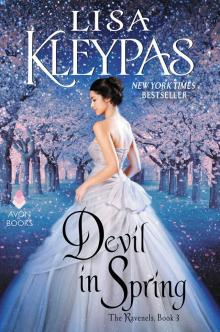 Devil in Spring
Devil in Spring Sugar Daddy
Sugar Daddy Devil in Winter
Devil in Winter Dreaming of You
Dreaming of You Christmas Eve at Friday Harbor
Christmas Eve at Friday Harbor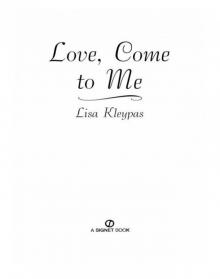 Love, Come to Me
Love, Come to Me Only With Your Love
Only With Your Love Suddenly You
Suddenly You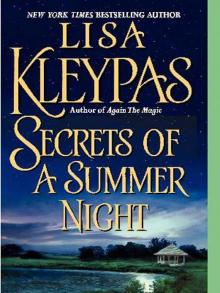 Secrets of a Summer Night
Secrets of a Summer Night Cold-Hearted Rake
Cold-Hearted Rake Where's My Hero?
Where's My Hero? Gifts of Love
Gifts of Love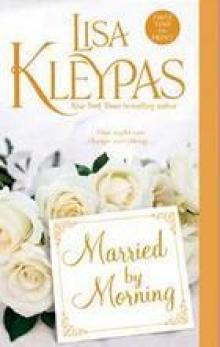 Married by Morning
Married by Morning Then Came You
Then Came You Wish List
Wish List Where Dreams Begin
Where Dreams Begin A Historical Christmas Present
A Historical Christmas Present Somewhere I'll Find You
Somewhere I'll Find You Scandal in Spring
Scandal in Spring Someone to Watch Over Me
Someone to Watch Over Me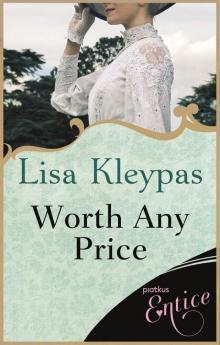 Worth Any Price
Worth Any Price Prince of Dreams
Prince of Dreams It Happened One Autumn
It Happened One Autumn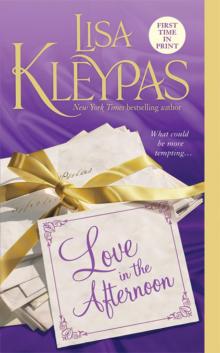 Love in the Afternoon
Love in the Afternoon Devil's Daughter
Devil's Daughter A Wallflower Christmas
A Wallflower Christmas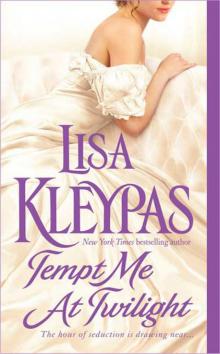 Tempt Me at Twilight
Tempt Me at Twilight Brown-Eyed Girl
Brown-Eyed Girl Mine Till Midnight
Mine Till Midnight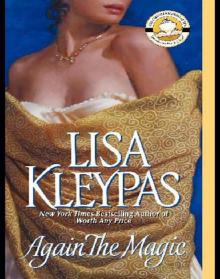 Again the Magic
Again the Magic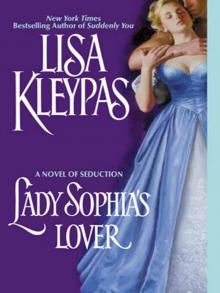 Lady Sophia's Lover
Lady Sophia's Lover Because You're Mine
Because You're Mine Midnight Angel
Midnight Angel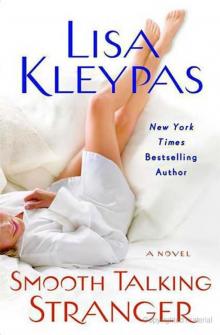 Smooth-Talking Stranger
Smooth-Talking Stranger Blue-Eyed Devil
Blue-Eyed Devil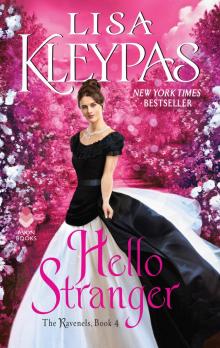 Hello Stranger
Hello Stranger Dream Lake
Dream Lake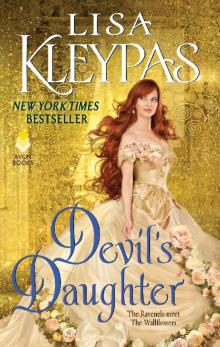 Devil's Daughter: The Ravenels Meet the Wallflowers
Devil's Daughter: The Ravenels Meet the Wallflowers A Christmas to Remember
A Christmas to Remember Smooth Talking Stranger
Smooth Talking Stranger Crystal Cove
Crystal Cove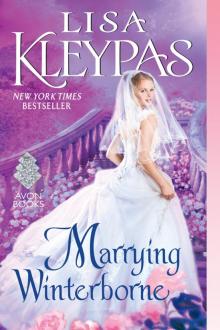 Marrying Winterborne
Marrying Winterborne Stranger in My Arms
Stranger in My Arms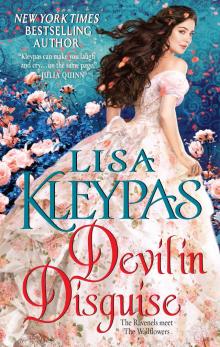 Devil in Disguise
Devil in Disguise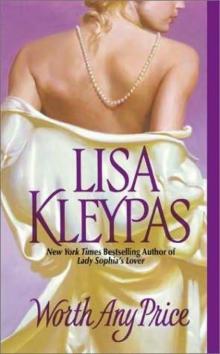 Worth Any Price bsr-3
Worth Any Price bsr-3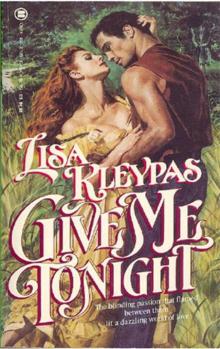 Give Me Tonight
Give Me Tonight Rainshadow Road fh-2
Rainshadow Road fh-2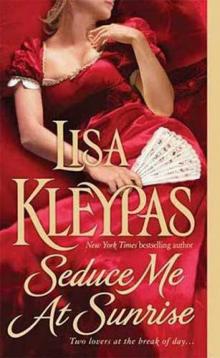 Seduce Me At Sunrise
Seduce Me At Sunrise I Will
I Will Someone to Watch Over Me bsr-1
Someone to Watch Over Me bsr-1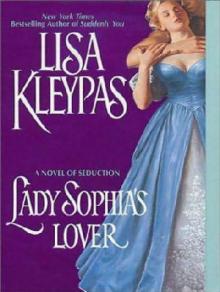 Lady Sophias Lover bsr-2
Lady Sophias Lover bsr-2 A Hathaway Wedding
A Hathaway Wedding A Hathaway Wedding (Hathaways Bk2.5)
A Hathaway Wedding (Hathaways Bk2.5) Worth Any Price - Bow Street 3
Worth Any Price - Bow Street 3 Christmas with Holly
Christmas with Holly